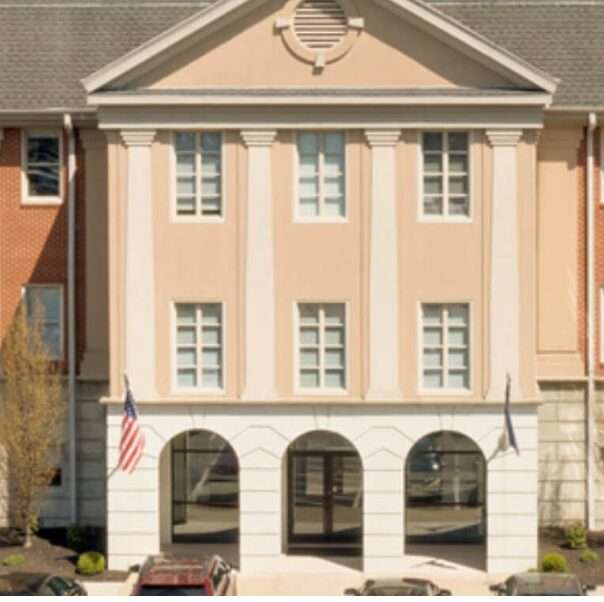In the immortal words of Ronald Reagan during a debate with Jimmy Carter, there they go again.
For the past 50 years, every so often the media, law enforcement, prosecutors and government officials start screaming at the top of their lungs that “crime is rising,” “something must be done,” and the like. Then the legislature passes laws, the police start arresting more people, prosecutors start asking for more prison time, the Department of Corrections tries to accommodate a perpetually growing prison population, the cost goes up, and services for the people of Kentucky go down. Rinse and repeat.
And now, there they go again.

The source of my angst is the extremely unwise octopus of a bill, House Bill 5, with no fewer than 72 pages and 53 different sections, most of them creating a new crime or enhancing the penalties for an old crime. It is sponsored by 50 House members, one-half the members of the House. It passed Thursday night after one brief committee hearing. I doubt if most of the sponsors have read the bill, and guarantee that they do not understand its ramifications or unintended consequences. The unintended consequences will not be understood until the police start arresting, the prosecutors start charging, an already overcrowded corrections and jails system starts accepting new prisoners, and the bill to pay for this starts going up and up while other services get cut.
Rinse and repeat.
Here’s some things I do know. This bill will greatly increase mass incarceration and the concomitant costs of our prison- industrial complex.
Here’s another thing I know. This bill is not necessary. Or wise.
There are four major reasons to defeat this bill or break it up into individual bills so that the merits of each of the 52 sections can be understood, debated and voted on. Here are my major objections.
HB 5 would increase out of control mass incarceration.
When I began practicing law in 1977, Kentucky incarcerated approximately 3,000 people in our prison system at a cost of a little over $9 million. The then-new Kentucky Penal Code had just passed with hope for a reasonable and data-based criminal justice system. Almost immediately after its passage, legislators responded to anti-crime rhetoric about a “War on Drugs,” a “war” that continued for several decades.
We passed Persistent Felony Offender laws; restricted probation and parole; passed so-called “Truth-in-Sentencing” laws requiring the spending of 85% of a term prior to parole eligibility; and increased penalties for possessing and selling various drugs. The net effect has been that the Kentucky prison population ballooned over the last several decades from a little over 3,000 persons to over 20,000. Many more are housed in our local jails either awaiting trial or serving misdemeanor or often low-level felony sentences.
Kentucky now has a higher incarceration rate than the national average. At the same time, our crime rate is below the national average. According to the Sentencing Project, the average U.S. incarceration rate is 355 per 100,000 residents. Kentucky incarcerates 437 per 100,000 residents.
HB 5 would increase mass incarceration in several ways.
Among many additions, the bill would increase the number of crimes denominated as a “violent offense” resulting in longer sentences for many. A new carjacking crime would be added to the penal code, punishable by 10-20 years in prison. Parole would be limited even for some Class C and D felonies. Wanton endangerment would be elevated to a Class C felony where a firearm is discharged. Fleeing the police would be elevated to a Class C felony with 50% parole eligibility.
Supporters of HB 5 contend that it is necessary due to repeated “soft on crime reform.” Rep. Jared Bauman, R-Louisvvile, is the primary sponsor of HB 5 and has stated that he believes the legislation could help put an end to the “crime epidemic” happening in Kentucky. But what if there is no “crime epidemic?”
Data indicates that crime is actually dropping in Kentucky. Violent crime rates in Kentucky of a little over 200 per 100,000 people are significantly below the national average of almost 400 per 100,000. Property crime rates have not increased in Kentucky for at least a decade according to the FBI. Significantly, the violent crime rate now is below what it was in 1979 when it was 248 per 100,000. There is no crime epidemic.
The basic premise of HB 5 is that increased penalties need to be imposed on persons convicted of violent offenses to deter persons from criminal activity. However, a 2017 study by the Vera Institute found that “increased incarceration has a marginal-to-zero impact on crime. In some cases, increased incarceration can even lead to an increase in crime.”
HB 5 would continue the unwise war on drugs.
First it was cocaine, then methamphetamine, then synthetics. Today, the drug du jour is fentanyl. Despite past bills that enhanced penalties for fentanyl, HB 5 tries again. This time, HB 5 would charge a fentanyl user who gives a fellow user his fentanyl, resulting in death, with manslaughter in the first degree, punishable by 10-20 years in prison with 85% parole eligibility. It also proposes charging a person who sells fentanyl that results in death to be charged with murder. Likewise, “promoting contraband” consisting of fentanyl would move from a Class D to a Class B felony punishable by 10-20 years in prison.
HB 5 would expand the reach of the death penalty.
A popular go-to in any major criminal justice effort is an expansion of the death penalty. HB 5 is no different. Despite there already being a law making the killing of a police officer eligible for the death penalty, HB 5 seeks to expand this to a broader class of “first responders.” Penalties would be increased above all other murders. Persons with two prior violent felonies would be eligible for the death penalty if they commit a capital offense. The death penalty has proven to be a failure in Kentucky, with over half of penalties reversed by an appellate court. The number of states with this penalty has shrunk to only 27. Kentucky has executed only one person involuntarily since its inception in 1976. It is costly to every part of the criminal justice system. Yet, HB 5 intends to expand its use.
HB 5 would oppress the poor.
Several provisions of the bill unfortunately treat the poor differently from people of means. The bill criminalizes homelessness and then allows force to be used against persons to boot them from homeless camps. The bill restricts the Bail Fund from putting poor defendants on equal footing to wealthy defendants. Do we really want such a two-tiered system of justice?
HB 5 would increase the costs of incarceration, robbing our state of needed funds for other priorities.
The House GOP and the governor both have proposed budgets that include expenditures of over $750 million on corrections in each year of the biennium. Their proposals are more than 80 times what we were spending when I began practicing law. Our expenditures have shown no increase in public safety as evidenced by a steady crime rate. HB 5 proposes to spend even more on incarcerating more people for ever longer sentences. The Corrections Impact Statement filed with the bill indicates that there will be a “significant impact” on corrections costs if HB 5 passes. Meanwhile, our citizens are starved for spending on health and dental care, post-secondary education, teachers’ salaries and other well documented needs. Why are we exploding the budget for a marginal effect on public safety?
If you want to know how we got here, University of Kentucky law professor Robert Lawson wrote the definitive pieces in three articles entitled “Difficult Times in Kentucky Corrections — Aftershocks of a ‘Tough on Crime’ Philosophy’ (2005),” “Turning Jails into Prisons. Collateral Damage from Kentucky’s War on Crime (2006),” and “PFO Law Reform: A Crucial First Step Towards Sentencing Sanity in Kentucky (2008).” What he portrays continues to this day in HB 5. It should be defeated in the Senate.
Ernie Lewis has been a criminal defense lawyer for almost 50 years, a public defenders for 31 years, including 12 years as a Kentucky public advocate. He was executive director of the National Association for Public Defense for seven years and is a founding members of the Kentucky Association of Criminal Defense Lawyers. This commentary first appeared in the Kentucky Lantern.

















